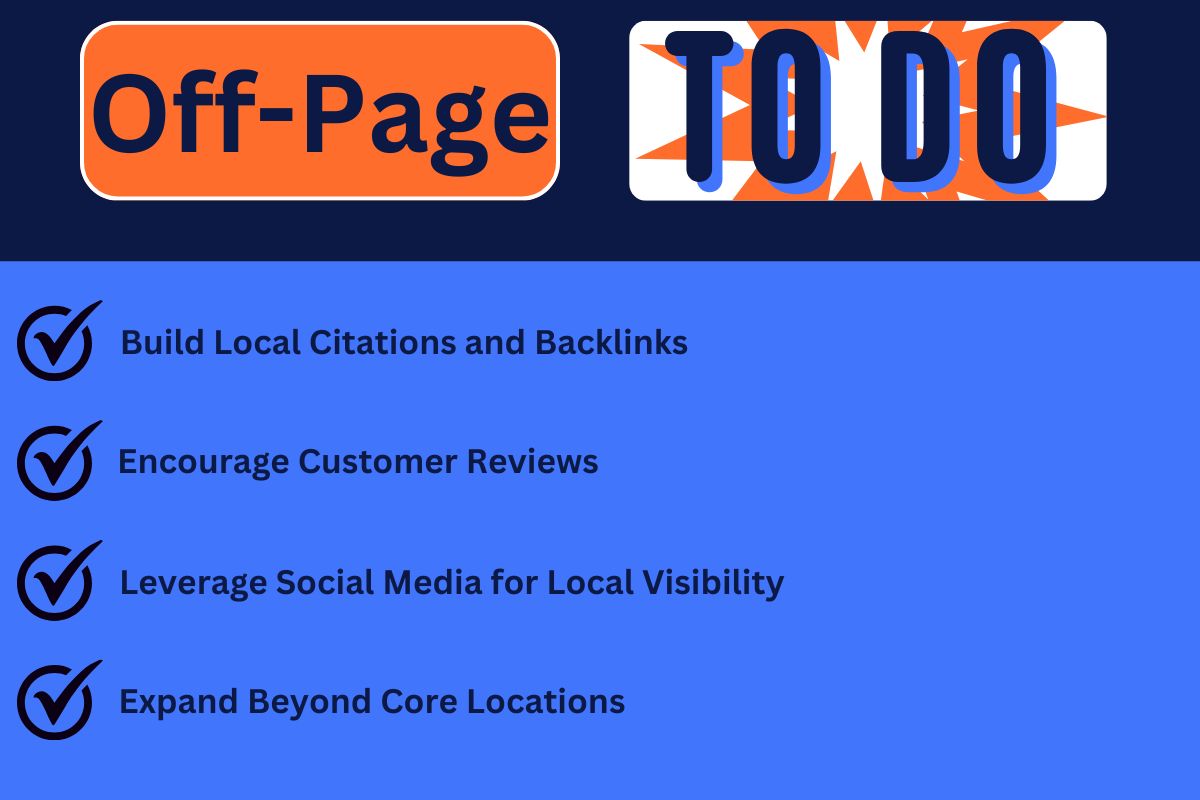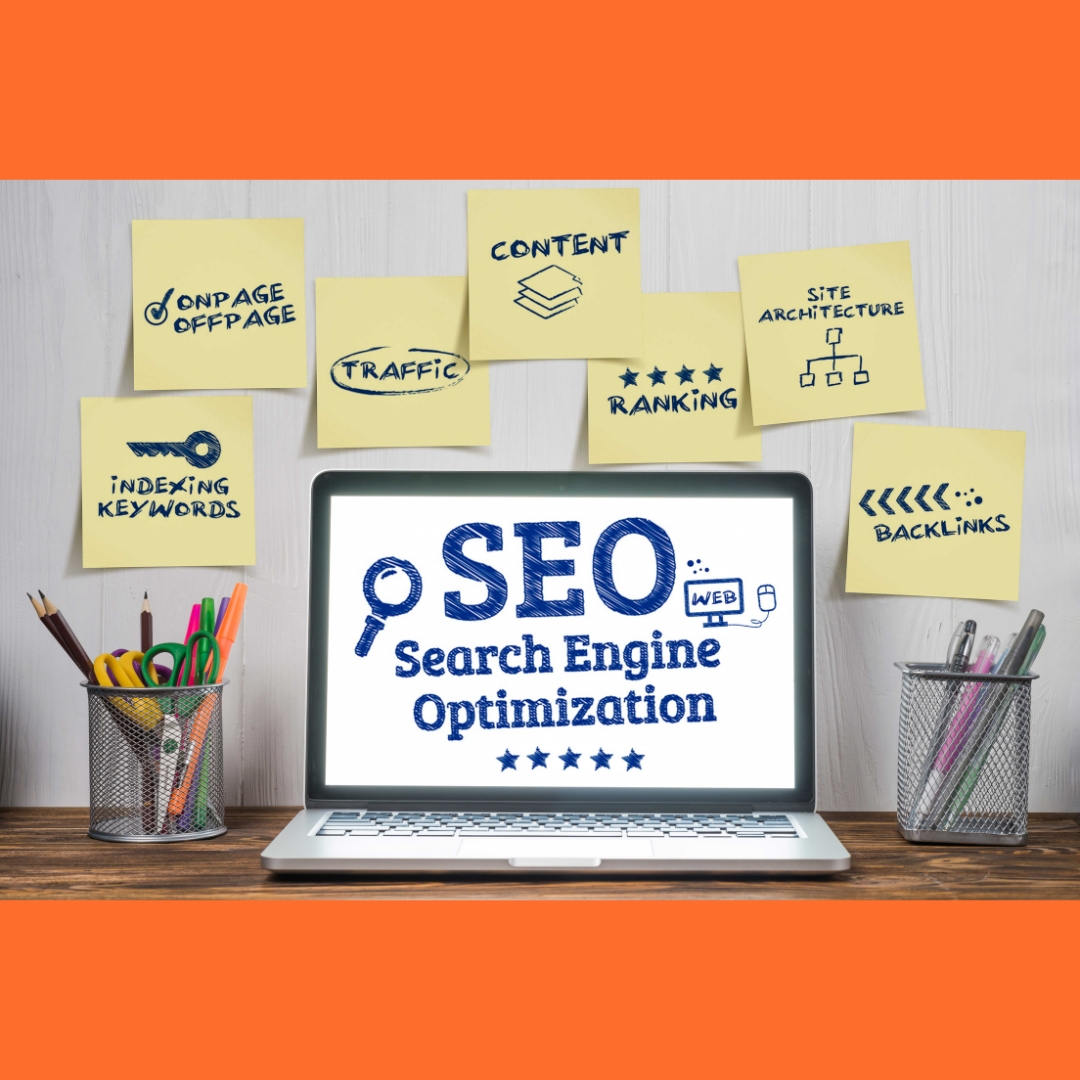How to do local SEO for beginners?
Have you ever wondered how some local shops appear first in Google searches? That’s Local SEO at work. Local SEO helps your business show up when people search for services in your area. Think of searches like “pizza near me” or “Chicago dentist” – that’s what we mean by local searches.
What is Local SEO?
Imagine that you run a coffee shop in Seattle. When someone types “coffee shops in Seattle” into Google, you want your shop to appear at the top of those local search results. Local SEO makes this happen by telling search engines exactly where you are and what you offer.
Small businesses get a fair shot against big chains with local SEO optimization. A local bookstore can outrank major retailers on Google maps by focusing on their neighborhood. Local SEO connects you with people who are ready to visit your store, call your office, or book your services.

To dive deeper into what is SEO localization, understanding basic SEO terminology is your first step to success. Think of local SEO marketing as building your business’s digital presence piece by piece. Start by putting your business on Google Maps. That’s like planting your flag on the digital map. Then focus on getting real customer reviews, as they tell search engines that you’re a trusted local business. Choose keywords that match the local expressions of your neighbors, if locals say “downtown” instead of your official district name, use that.
What is local SEO marketing really about?
It’s about making your business visible exactly where and when local customers are looking. Your presence on Google maps works like a 24/7 greeter, welcoming potential customers and guiding them from their search results straight to your door.
What is a Local SEO Landing Page?
A local SEO landing page is a digital storefront for each area you serve. It’s actually your local business profile (most important being Google Business Profile) that speaks directly to people in specific locations.
Your local page or a profile on maps should contain key details that locals care about. Include your business name, exact address, a phone number, and a website (the elements known as NAPW). But don’t stop there. Add content that shows you know the area. A dentist might mention serving families in specific neighborhoods, while a restaurant could highlight local delivery zones.
Here is an example of a simple, informative and straightforward local SEO landing page (on the website):

The advantages of local SEO landing pages are clear. They help you show up when locals search, and they give visitors exactly what they need. These pages help you improve local SEO by including neighborhood landmarks, mentioning local events, and ‘speaking your local customers’ language’. This targeted approach turns searches into visits and visits into customers.
Local SEO vs Organic SEO
Local SEO gets you noticed by nearby customers. When someone types “pizza delivery near me” or “book store Miami,” local SEO helps your business appear in these results (primarily and most importantly – in Google maps). Local SEO focuses on customers in the area where your business is located, and targets businesses on maps based on the proximity and the searched query.
Organic SEO works differently. It helps you rank with all of your website pages (not your map profile or only local pages) for broad topics and more general terms, especially non-local ones. This approach fits businesses that sell everywhere, not just in one area. National retailers and online services often focus on organic SEO to reach customers anywhere, but also use local SEO to approach customers in specific areas country-wide.
While both types of SEO aim to boost your visibility, they target different audiences. But what is the difference between local and organic SEO? Local SEO connects you with people in your area, while organic SEO reaches people regardless of location. This means that organic SEO covers local SEO as well (for location-oriented businesses, of course)
Why Is Local SEO Important?
Think your business can survive without local SEO? Think again. The importance of local SEO lies in everyday search, people search for local businesses, and local SEO helps them find yours. It’s the difference between being visible or invisible to customers in your area.
For example, when someone searches “pizza in Chicago,” they’re ready to eat. They want food now, not tomorrow. Local SEO puts your business in front of these hungry customers at the perfect moment.
Here are some numbers and facts to explain the importance of ranking high on Google maps:
Direct Business Impact:
- 46% of Google searches are local
- Most local searches lead to store visits within 24 hours
- Higher conversion rates from ready-to-buy customers.
Build Trust, Get Customers:
- Show up where customers look
- Display real customer reviews
- Provide accurate, up-to-date information
- Engage with your community online.
Smart Business Owners Use Local SEO To:
- Track customer patterns
- Understand local demand
- Stay ahead of nearby competitors
- Make better business decisions.
Local SEO isn’t just about being found, but also about being chosen. When you appear in local search results with positive reviews and clear information, you become the obvious choice. This visibility turns into foot traffic, phone calls, and sales.
Want more local customers? Local SEO is your answer. It connects you with people actively looking for what you offer, right when they need it. To effectively grow your brand with SEO, implementing a strong Local SEO strategy is not enough, but it is necessary.
Pit-stop: Check out the top 10 SEO strategies
How Local SEO Works
Local SEO operates through three main elements: proximity, relevance, and prominence. These core components drive how search engines rank and display local businesses in search results.
- Proximity – the closer you are, the higher the chances to appear at the top!
Your business location matters more than ever in local search. When someone looks for “pizza delivery near me,” search engines check their location first. This is why your Google Business Profile (formerly GMB) must show your exact address. - Relevance – the more relevant for the query searched, the more likely you are to stand out!
This measures how well your business matches what people search for. You have to think about what words your customers would use. Include location terms in your website content, such as “Manhattan tax attorney” or “Downtown Denver flower shop .” Your content needs to match these local search patterns. - Prominence – The better reviews, the more likely it is that Google will show you, and the customers will choose you
This shows how well-known your business is online. Reviews, local news mentions, and directory listings all build prominence. Strengthening your online presence through strategies like leveraging customer feedback and building local connections is how Indexed Zone SEO helps you grow.

Key Components of Local SEO
- Google Business Profile (GBP): Your GBP is the cornerstone of Local SEO. Ensure your profile is complete, accurate, and regularly updated with contact information, operating hours, and images.
- Local Citations: Listing your business in local directories improves visibility and credibility.
- Reviews: Customer reviews play a pivotal role in influencing search rankings and building trust. Encourage satisfied customers to leave positive reviews.
- Geo-Modifiers: Using city names and neighborhood references in your content improves relevance and helps capture local search traffic.
Understanding these elements helps you build a strong local presence. Focus on each component to improve your visibility in local searches.
How to Make Local SEO Work for Your Business
Achieving success with Local SEO requires a combination of on-page and off-page optimization strategies.
On-Page Optimization Checklist for Local SEO (your website optimization)
On-page optimization lets you control how search engines view your website. To boost visibility and learn what is local SEO optimization, follow this checklist to discover simple ways to improve Local SEO for better rankings in local searches.
Optimize Meta Tags with Local Keywords
Title tags, meta descriptions, and headers should include location-specific keywords. For example, instead of generic terms like “Best Restaurant,” use “Best Restaurant in Los Angeles.” This helps search engines understand your location and is key to learning how to dominate local SEO effectively.
Include City and Neighborhood Names
Put your location details in your headings, content, and URLs. This makes your site more relevant for local searches. For example, create URLs like www.example.com/plumbing-services-los-angeles to show search engines your service area.
Use Schema Markup for Local Businesses
Add LocalBusiness schema to provide search engines with your address, hours, and contact details. This structured data boosts your visibility in rich search results. Learn more from Google’s Structured Data Documentation, or consult Indexed Zone SEO for expert help.
Include City Names and Geo-Modifiers for Local SEO Blog
Using city names and geo-modifiers is a part of local SEO best practices. Add city names for local SEO in blogs naturally in titles, meta descriptions, headers, and body text. For example, use phrases like “Best Restaurants in Dallas” or “serving the Dallas area.”
Also, include geo-modifiers in URLs (www.example.com/restaurants-dallas) and image alt text. Knowing where to include geomods for local SEO in blogs helps refine targeting, making your content more relevant to local searchers.

Off-Page Optimization Checklist for Local SEO
Off-page optimization helps build your authority outside of your website. To strengthen your position in local search results, it’s essential to analyze local SEO competition and implement strategies that set your business apart.
Build Local Citations and Backlinks
Get your business listed in key directories and your local chamber of commerce. Boost your authority by earning backlinks from local news sites and blogs, which is essential for building local SEO outside your core location.
Encourage Customer Reviews
Reviews on Google Business Profile and Yelp affect your rankings and customer trust. Ask satisfied customers to share their experiences online.
Leverage Social Media for Local Visibility
Connect with your local community through social media platforms. Share local updates, join area discussions, and use location-based hashtags to increase visibility.
Expand Beyond Core Locations
Does your business serve multiple areas? Create dedicated pages for each location to target local customers effectively. Include detailed service information to improve local SEO for multiple locations and attract more visitors.

Local SEO Tools
The mix of tools can make or break your Local SEO strategy. Here’s a carefully selected set of tools that will help you with keyword research, citation management, and performance tracking:
- Google Business Profile (BP)
This is the cornerstone of Local SEO, given that most of the people use Google as their primary search engine. With GBP, you can manage your business profile, provide accurate information, and build customer relationships through reviews and updates, all while tracking essential metrics for local SEO. - BrightLocal
BrightLocal stands out in Local SEO management, delivering essential features for rank tracking, citation building, and review monitoring and management. - SEMrush
SEMrush provides a robust SEO toolkit with excellent local capabilities. From competitive analysis to keyword discovery and tracking your local search rankings, it’s perfect for finding local landing page SEO examples and improving your performance with actionable SEO metrics. - Moz Local
Moz Local focuses on keeping your business information consistent across major directories. It helps you get valuable insights about local search performance and ways to improve your visibility.
Key Features and Costs of These Tools
Google My Business: Free. Provides essential tools for managing your local listing.
BrightLocal: Starting at $29/month, offering detailed local citation and ranking analysis.
SEMrush: From $119/month, including comprehensive analytics and keyword monitoring.
Moz Local: Beginning at $129/year, specializing in directory management and listing accuracy (local SEO costs).
Your choice of tools should align with your budget and Local SEO objectives. Using these tools together can streamline your optimization work and provide clear insights for improvement.
How to Monitor Your Local SEO Results
Tracking the performance of your Local SEO efforts shows you how to improve local SEO, what works, and what needs fixing. By watching key numbers, you can make your strategy better and stay ahead of competitors.

- Use Google Analytics
Google Analytics provides detailed insights into your website visitors, including where they come from, how much time they spend, and which pages they engage with most. Use location data to ensure you’re reaching local audiences and improving your Local SEO. - Leverage Google Business Profile Insights
Your Business Profile (formerly GMB) tells you how customers find and interact with your listing. It shows data about people who search for your business, call you, or ask for directions. This information reveals if locals see your business when they search online. - Track Rankings and Conversions
Tools like SEMRush help you watch your local keyword rankings. Match this data with conversion tracking to see if your Local SEO brings in customers. Keep track of click rates and form submissions to understand how people respond to your business listing. - Set Benchmarks and Goals
Create clear targets for important metrics like keyword rankings, website visits, and customer reviews. Look at these numbers each month to ensure you make progress, and change your approach when needed.
Reasons Why Local Businesses Should Invest in Local SEO
Local SEO is essential for any business that wants to grow in their local area. Here are the benefits of SEO for local businesses:
- Enhanced Visibility and Foot Traffic
When you optimize for Local SEO, your business shows up at the top of local searches. This brings real people to your store. Think about a fitness studio that appears first when someone searches “San Diego fitness studio.” These searches turn into customers walking through your door with their wallets ready. - Cost-Effectiveness and High ROI
Local SEO gives you more value than traditional ads. Instead of casting a wide net, you reach people already looking for what you sell. Once you set up your Local SEO, it keeps working for you without big ongoing costs. Your business stays visible to local customers day and night. - Competitive Edge in Local Market
Without Local SEO, you risk losing customers to competitors who invest in their online presence. When someone searches for your type of business, do you want your competitor showing up instead of you? Local SEO helps you stay visible and relevant in your community.
Whether you run a small shop or manage multiple locations, Local SEO builds your reputation and connects you with nearby customers. It’s about being there when local customers need you and building lasting relationships in your community.
FAQ
How Much Does Local SEO Cost?
The cost of Local SEO varies based on the services you need, the complexity of your industry, and the competition in your area. Small businesses, however, often find that how Local SEO increases profits justifies the investment, which typically ranges from $1,000 to $10,000 per month.
How Long Does Local SEO Take?
Local SEO is not an overnight solution. It typically takes 3 to 6 months to see significant results, depending on factors like competition, the quality of optimization, and the frequency of updates.
Can I Do Local SEO on My Own, or Do I Need a Professional?
You can start Local SEO on your own by optimizing your Google My Business profile, adding location-specific keywords, and ensuring your business details are accurate online. However, hiring a professional can save time and bring advanced expertise, especially for tasks like building local citations, managing reviews, and conducting competitor analysis. The choice depends on your time, budget, and the complexity of your Local SEO goals.


